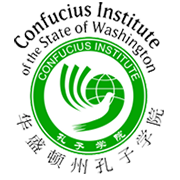General Test Information
What is HSK?
Hànyǔ Shuǐpíng Kaushi 汉语水平考试 (HSK) is China’s official Chinese language proficiency test for non-native speakers. It is a standardized exam to measure the test taker’s Chinese language proficiency. HSK assesses non-native Chinese speakers’ abilities in using the Chinese language in their daily, academic and professional lives. The test is administered worldwide with over 1,147 HSK exam centers in 137 countries and regions.
What is HSKK?
Hànyǔ Shuǐpíng Koushi, 汉语水平口语考试 HSK Speaking Test (HSKK) assesses the test takers’ oral Chinese abilities. HSKK consists of three levels, HSKK (Primary level), HSKK (Intermediate level) and HSKK (Advanced level). HSKK is conducted in the form of audio recording.
To be eligible for the HSKK, you must meet the following qualifications: To take the HSKK primary level, you must first pass the HSK level 3: for the intermediate level of HSKK you must pass HSK level 4; for the advanced level of HSKK, you must pass at least HSK level 5.
What is YCT?
Zhōng xiǎo xué Hànyǔ Shuǐpíng Kǎoshì, 中小学生汉语考试 or Youth Chinese Test (YCT), is an international standardized test of Chinese language proficiency. This test assesses the primary and middle school students’ abilities to use Chinese as second language in their daily and academic lives. YCT is divided into writing and speaking tests, which are independent to each other. The writing test consists of four levels, namely, YCT level I, II, III, and IV. The speaking test consists of two levels, Entry and Intermediate.
Categories and Levels
The HSK consists of two independent parts; a written test and an oral test. The written test is comprised of HSK-Level 1, 2, 3, 4, 5 and 6, while the oral test is comprised of Entry, Intermediate and Advanced levels. During the oral test, sound-recording devices are required.
Note: All HSK test instructions are given exclusively in Chinese.
HSK level 1 is for learners who can understand and use some simple Chinese characters and sentences to communicate, and prepares them for continuing their Chinese studies. It is appropriate for students with 50-100 hours of formal education in modern Chinese, who have mastered 150 Chinese characters.
HSK level 2 is for elementary learners who can use Chinese in a simple and direct manner, applying it in a basic fashion in their daily lives. It is appropriate for students with 100-150 hours of formal education in modern Chinese, who have mastered 300 Chinese characters.
HSK level 3 is for elementary-intermediate learners who can use Chinese to serve the demands of their personal lives, studies and work, and are capable of completing most of the communicative tasks they experience during their Chinese tour. It is appropriate for students with 150-200 hours of formal education in modern Chinese, have mastered a vocabulary of 600 Chinese characters.
HSK level 4 is for intermediate learners who can discuss a relatively wide range of topics in Chinese and are capable of communicating with Chinese speakers at a high standard. It is appropriate for students with 200-400 hours of formal education in modern Chinese, have mastered a vocabulary of 1200Chinese characters.
HSK level 5 is for learners who can read Chinese newspapers and magazines, watch Chinese films and are capable of writing and delivering a lengthy speech in Chinese. It is appropriate for students with 350-550 hours of formal education in modern Chinese, have mastered a vocabulary of 2500 Chinese characters.
HSK level 6 is for learners who can easily understand any information communicated in Chinese and are capable of smoothly expressing themselves in written or oral form. It is appropriate for students with 500-600 hours of formal education in modern Chinese, have mastered a vocabulary of 5000 or more Chinese characters.
Young Learners Chinese Test (YCT)
The YCT test is for students up to age 15. There are four levels.
Level 1 is for examinees who can understand and use some most frequently used Chinese words and sentences, and prepare themselves for continuing their Chinese studies;
Level 2 is for examinees who can understand and use some simple Chinese words and sentences to communicate;
Level 3 is for examinees who can use Chinese in a simple and direct way, applying it in a basic topic in their daily lives;
Level 4 is for examinees who can use Chinese to serve their demands in their personal lives and studies, and are able to complete most communication in Chinese.
Click here for sample tests.
Certification
The HSK and YCT are designed to certify that non-native Chinese speakers are qualified to communicate in Chinese at the level required for school and daily interactions in China. Educational institutions and businesses often require proof of language proficiency for non-natives. HSK and YCT certification is granted based on the level of testing taken, and passing grades may provide exemption from Chinese language courses. The HSK and YCT certificates are valid for life. However, for students applying to Chinese colleges or universities, the exam report is only valid for two years.
For test guidelines and sample tests, go to Download Center.



